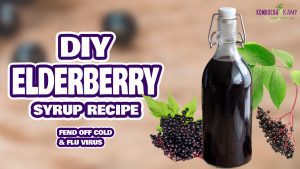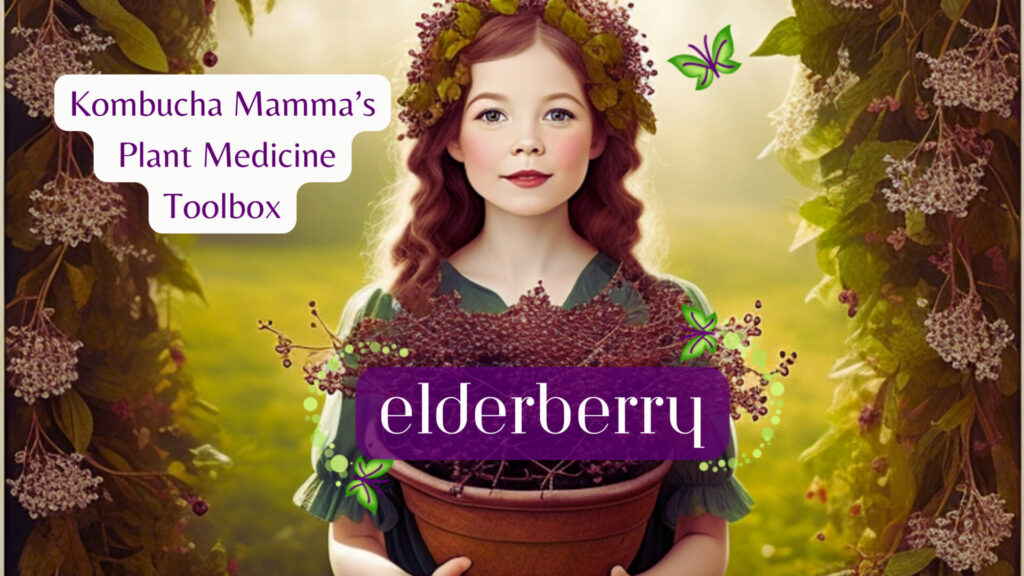
I adore the elder tree. In summer, her elderflowers create a delightful, intoxicating infusion for all manner of syrups, fermented drinks (alcoholic and non) and herbal tisanes. In the fall, her fruit, that purple, ripe tart elderberry create a rich, tasty elixir perfect for flavoring for anything fermented or to simply enjoy on its own. As a woman of Celtic heritage, I’m proud that my ancestors revered this sacred tree and its life boosting properties. However, it is not unique to the Celts as these trees have many ancient texts that tout their benefits.
~ Hannah Ruhamah, the Kombucha Mamma
Shop Kombucha Kamp's Organic Elderberry & Organic Elderflower
-

Elderberry Syrup Class
$22.00 Add to cart -
Sale!
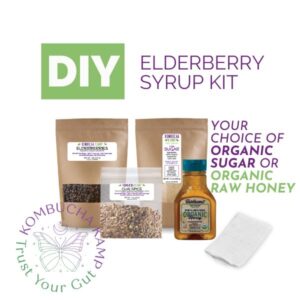
Elderberry Syrup DIY Kit
Rated 5.00 out of 5$22.95 – $27.95 Select options This product has multiple variants. The options may be chosen on the product page -
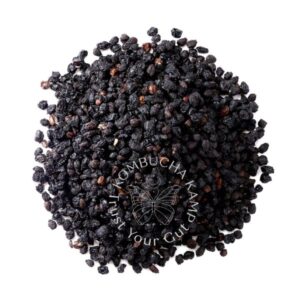
Dried Elderberries – Loose Dried Elderberries for Tea
Rated 4.97 out of 5$6.95 – $34.95 Select options This product has multiple variants. The options may be chosen on the product page -
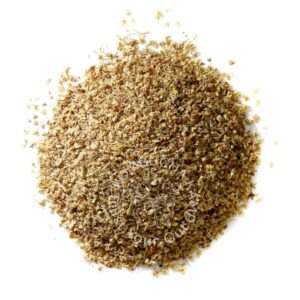
Elder Flower Tea – Loose Leaf of Elder Flowers
Rated 5.00 out of 5$6.95 Select options This product has multiple variants. The options may be chosen on the product page
Historic Origins of Elderberry & Elderflower
- Ancient Europe: The elder tree has been used for centuries in European folk medicine and folklore. It was considered a sacred tree with protective qualities and was often planted near homes to ward off evil spirits.
- Medieval Times: In medieval Europe, elderberries were commonly cultivated in monastery gardens for their medicinal properties. The berries were used in various remedies.
- Native American Traditions: Indigenous peoples in North America also used elderberry for its medicinal benefits. They made teas and poultices from various parts of the plant.
- Traditional Chinese Medicine: In Traditional Chinese Medicine (TCM), the elder flower and berry have been used for their cooling properties to treat fever and respiratory ailments.
- Culinary and Beverage Use: Elderberries have been used to make wines, cordials, and jams, and elderflower has been used to flavor beverages and desserts throughout history.
Plant Medicine Toolbox: Elderberry & Elderflower
Immune Support: Elderberries are rich in antioxidants and vitamin C, making them a popular choice for immune support. They are often used to help prevent or reduce the severity of colds and flu.1
Anti-Inflammatory: Elderflower is known for its anti-inflammatory properties and has been used to alleviate symptoms of respiratory conditions like sinusitis and allergies.2
Diuretic: Elderflowers can act as a mild diuretic, aiding in the removal of excess fluids from the body and potentially helping with conditions like edema.3
Antiviral: Some studies suggest that elderberry extracts may have antiviral properties that can help inhibit the replication of certain viruses, including those responsible for the common cold and flu.4
Digestive Health: Both elderflower and elderberry have been used to support digestive health. They may help alleviate constipation and promote regular bowel movements.5
Disclaimer: This site contains information for educational purposes. It’s advisable to consult with a healthcare professional, especially if you have underlying health conditions or are taking medications.
Shop Kombucha Kamp's Organic Elderberry & Organic Elderflower
-



Elderberry Syrup Class
$22.00 Add to cart -
Sale!

Elderberry Syrup DIY Kit
Rated 5.00 out of 5$22.95 – $27.95 Select options This product has multiple variants. The options may be chosen on the product page -

Dried Elderberries – Loose Dried Elderberries for Tea
Rated 4.97 out of 5$6.95 – $34.95 Select options This product has multiple variants. The options may be chosen on the product page -

Elder Flower Tea – Loose Leaf of Elder Flowers
Rated 5.00 out of 5$6.95 Select options This product has multiple variants. The options may be chosen on the product page
References
- Zakay-Rones, Z., Thom, E., Wollan, T., & Wadstein, J. (2004). Randomized study of the efficacy and safety of oral elderberry extract in the treatment of influenza A and B virus infections. Journal of International Medical Research, 32(2), 132-140.
- Krawitz, C., Mraheil, M. A., Stein, M., Imirzalioglu, C., Domann, E., Pleschka, S., & Hain, T. (2011). Inhibitory activity of a standardized elderberry liquid extract against clinically-relevant human respiratory bacterial pathogens and influenza A and B viruses. BMC Complementary and Alternative Medicine, 11(1), 16.
- Sidor, Andrzej; Gramza-Michałowska, Anna. (2015). Advanced research on the antioxidant and health benefit of elderberry (Sambucus nigra) in food – a review. Journal of Functional Foods, Volume 18, Part B, Pages 941-958
- Roschek, B., Fink, R. C., McMichael, M. D., Li, D., & Alberte, R. S. (2009). Elderberry flavonoids bind to and prevent H1N1 infection in vitro. Phytochemistry, 70(10), 1255-1261.
- Pascariu, O.-E.; Israel-Roming, F. Bioactive Compounds from Elderberry: Extraction, Health Benefits, and Food Applications. Processes 2022, 10, 2288.
read More...
Flavoring Kombucha Recipes: Elderflower Kombucha Recipe with Honey/Lemon & Cucumber/Mint
